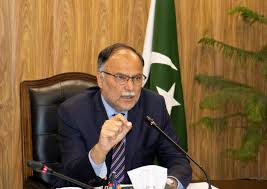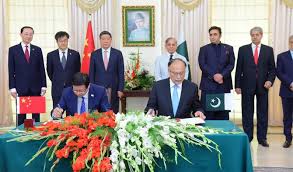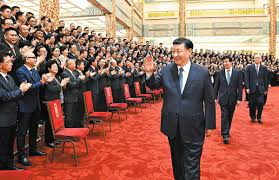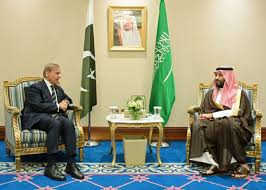Peace, stability, and continuous reforms crucial to harness full potential of CPEC: Planning Minister

Islamabad: Pakistani Federal Minister for Planning, Development, and Special Initiatives Ahsan Iqbal has emphasized the critical importance of peace, stability, and continuous reforms in harnessing the full potential of the China-Pakistan Economic Corridor (CPEC).
During his address at the National Workshop Balochistan at the National Defence University, the minister expressed gratitude to China for its support in 2013, transforming Pakistan’s image from a security state to a land of foreign direct investment opportunities through CPEC

The session, focused on CPEC’s impact on the socioeconomic development and security of Balochistan, saw participation from Shi Yuanqiang, Deputy Chief of Mission of the Chinese Embassy in Pakistan, alongside parliamentarians, students, civil society, and academia.

Ahsan Iqbal highlighted the threat of misinformation and polarization, noting their potential to derail mega projects like CPEC. He also emphasized the transition from geopolitics to geo-economics, noting that economic strength now determines global standing and influence. CPEC has added 7,000 MWs of electricity and built extensive infrastructure. Despite these gains, the project has faced significant propaganda and challenges.
The minister underlined Balochistan’s crucial role in CPEC due to its strategic location and resources. He detailed the revival efforts post-2018, which saw substantial progress in projects like Gwadar Port, Gwadar Hospital, and Gwadar University, despite previous setbacks. Minister Iqbal reiterated that CPEC is pivotal for Pakistan’s roadmap to a trillion-dollar economy by 2030, aligned with the 5Es Framework, focusing on export-led growth.
He stressed the need for sustainable peace, political stability, and policy continuity as CPEC enters its second phase. The session concluded with an interactive Q&A session, where Minister Iqbal engaged with participants on various aspects of CPEC and its impact on Pakistan’s future.





